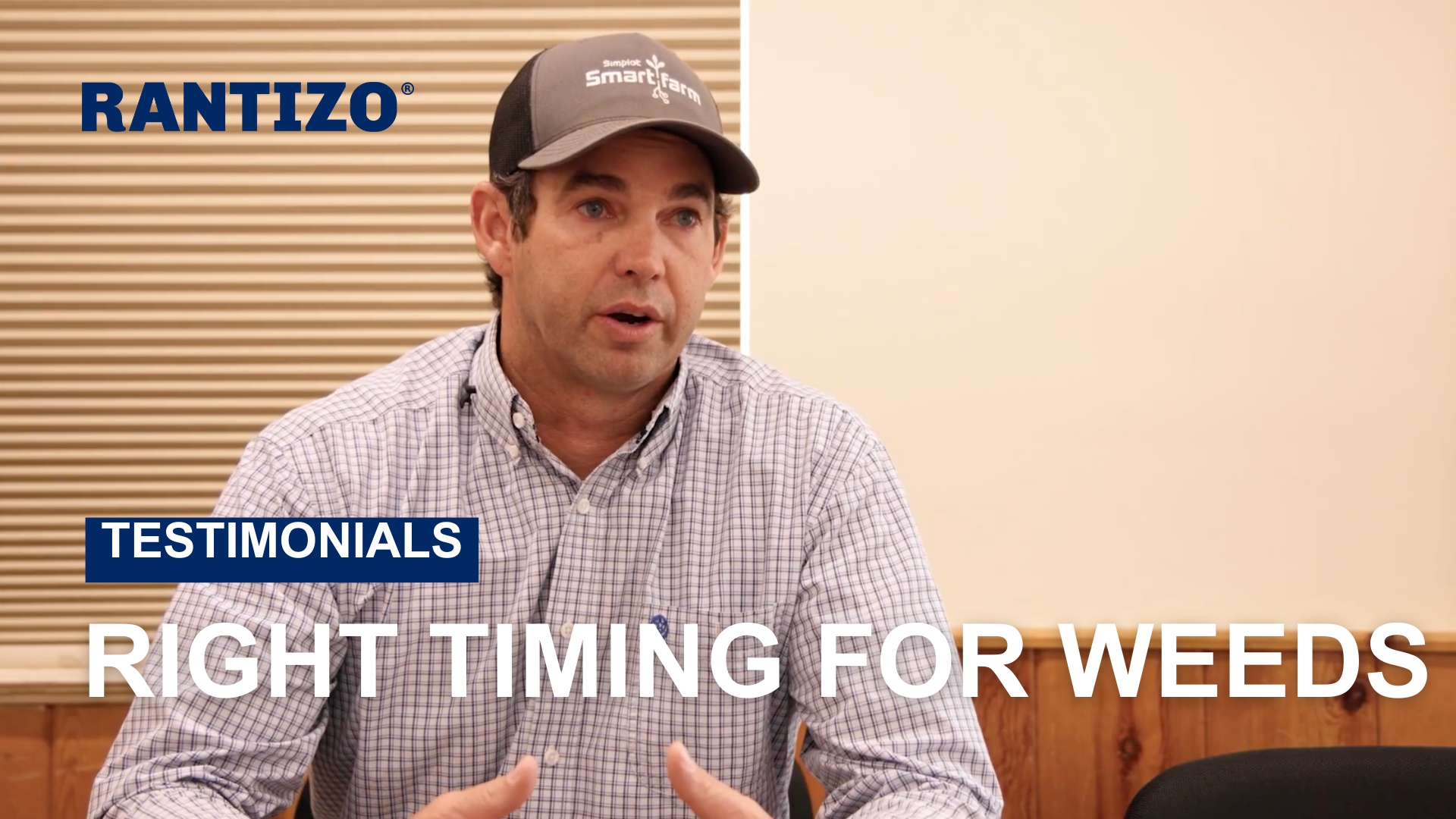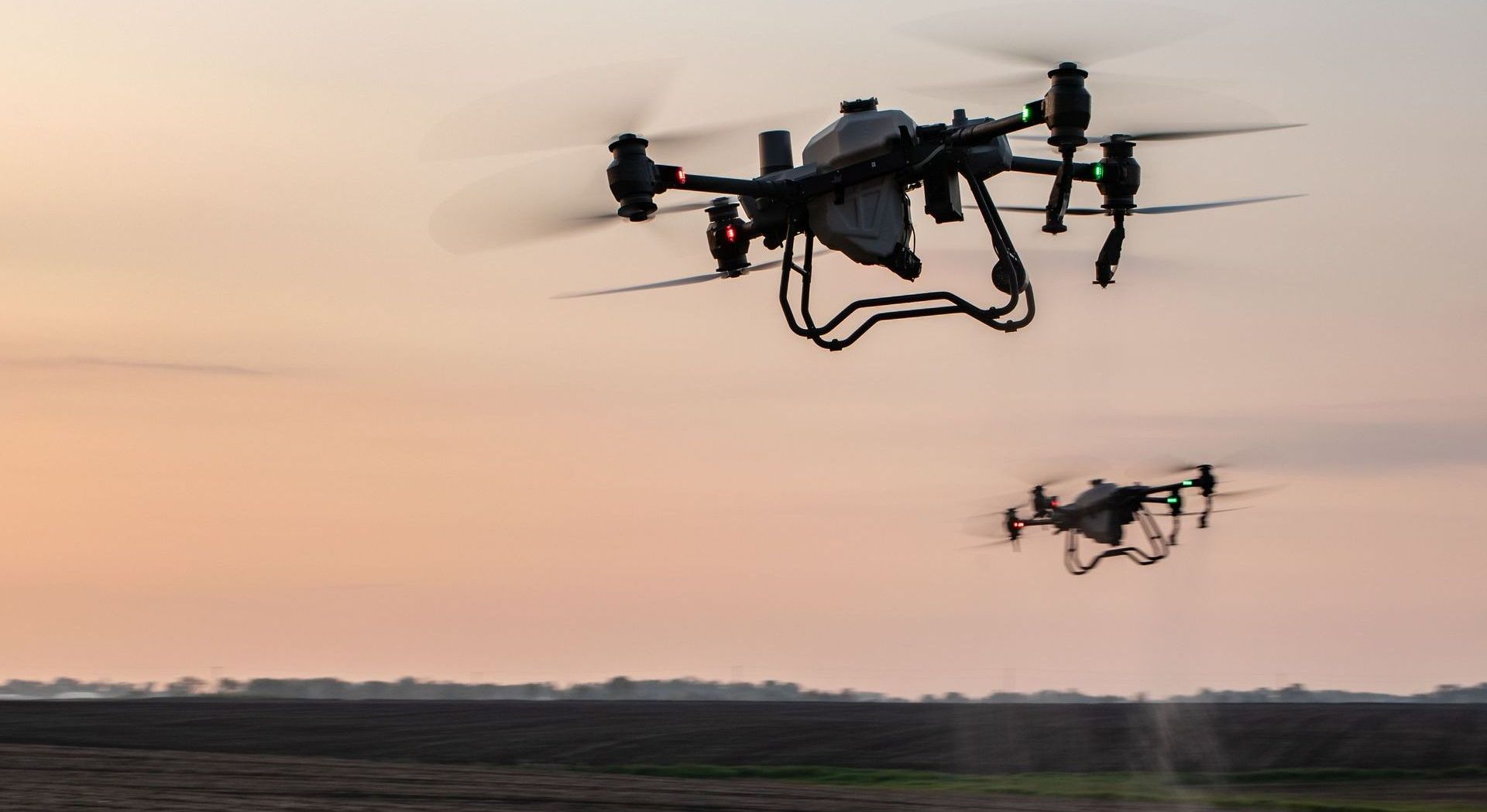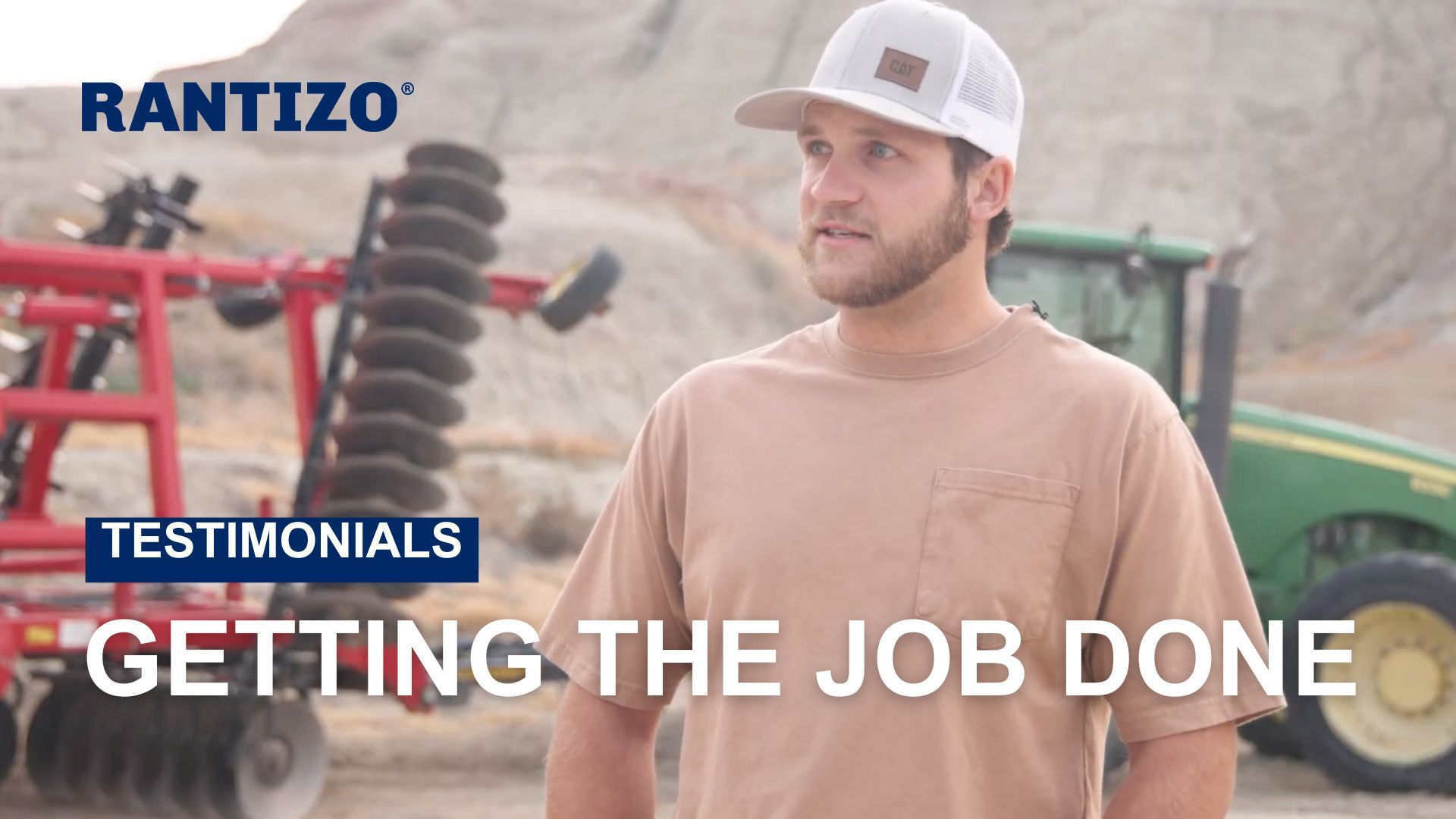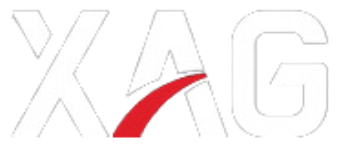RESOURCES
Comparing Agricultural Drones: XAG P100 Pro vs DJI T40
Whether you’re a tech-savvy, long-time drone operator looking for a new spray drone that’s durable and efficient, a beginner seeking a user-friendly option, or a current drone user looking to diversify or expand your fleet, this comparison will provide valuable insights to help you make an informed decision.
Let’s explore the unique features, strengths, and weaknesses of these drones, and see how they stack up against each other. To learn more about each drone and their key differences, be sure to watch our video.
DJI T40: User-Friendly and Intuitive
DJI, a well-known name in the drone industry for its consumer camera drones, emphasizes user-friendliness and quick deployment in their agricultural spray drones, such as the DJI Agras T40. These drones utilize best-in-class cameras and advanced communication systems between the remote controller and the drone.
The T40 comes with a high-definition first-person view (FPV) gimbal camera. This camera allows the operator to see the drone’s path through the controller, aiding in flight control and obstacle avoidance. The T40 is also equipped with a spherical radar obstacle detection system that perceives obstacles and surroundings while eliminating blind spots in most environments and viewing angles. This system, paired with the FPV camera, allows the T40 to detect obstacles quicker than the P100 Pro, giving the operator a sense of ease.
One key feature of the T40 is the remote controller (RC). The RC is massive and has a large 7-inch screen, which provides a wider perspective with finer detail. The app interface and communication system are very intuitive, making it more user-friendly for those who are not so tech-savvy.
XAG P100 Pro: A Focus on Durability and Productivity
The P100 Pro is a product of XAG, an ag-tech company that designs drones with agricultural needs in mind. Their drones are built to be durable, stable, productive, and efficient.
The P100 Pro stands out with its larger tank capacity (50L compared to the T40’s 40L) and almost double the output of the pumps. This makes the P100 Pro a great choice for those who want a drone that can spray a higher output or higher gallons per acre (GPA) without compromising productivity.
One of the key features of the P100 Pro is its stretchy rubber tubing. This design ensures that the tubing doesn’t start leaking over time, even if the tubing is frequently disconnected and reconnected during maintenance.
The P100 Pro also has fewer parts and more interchangeable components, making maintenance and repairs easier. However, one downside is that it’s not as user-friendly as some other models. Training someone on the XAG system can be a bit more challenging due to its complex features.
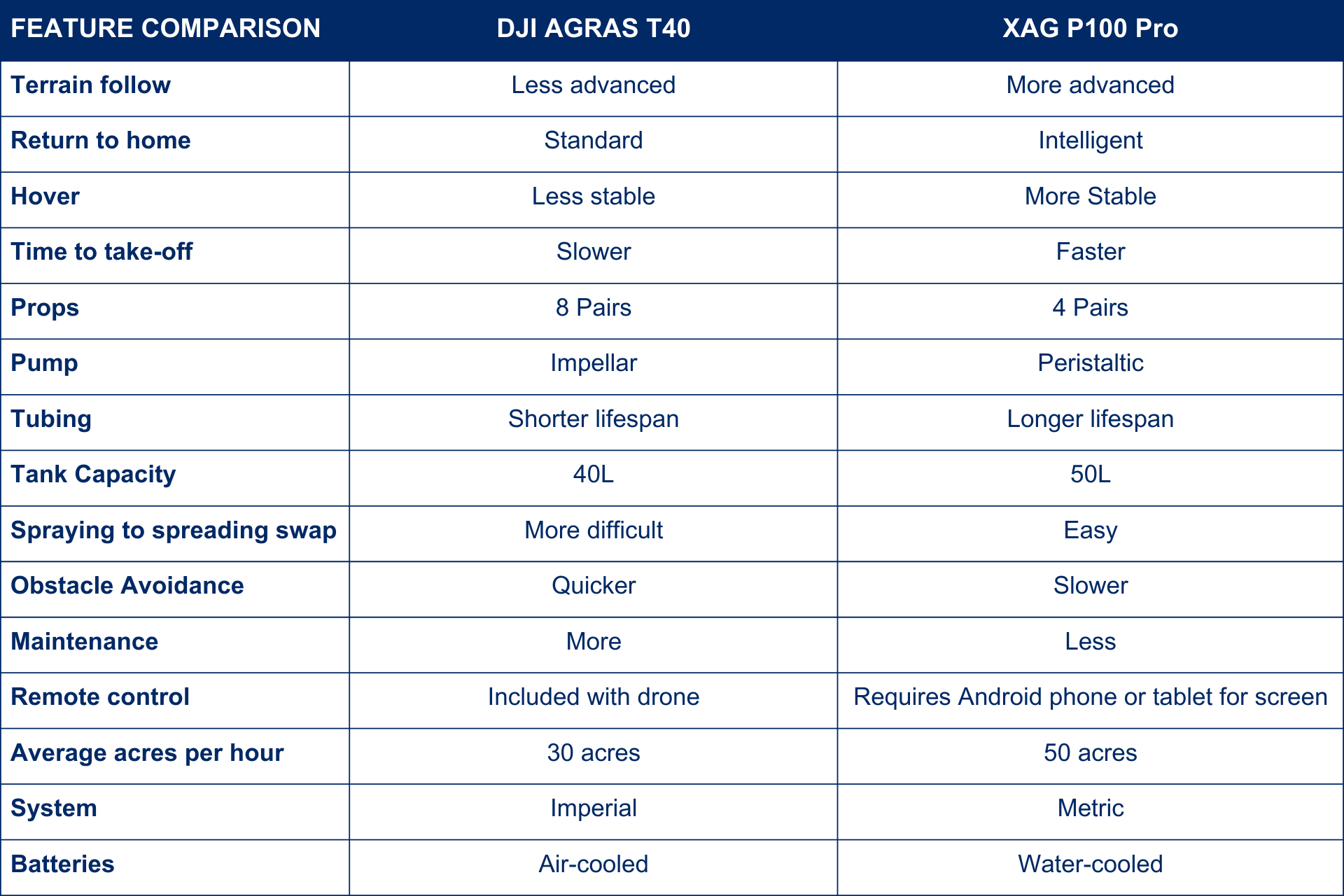
Summary: Strengths and Weaknesses
Both the P100 Pro and the T40 have their strengths and weaknesses. The P100 Pro is durable and has a high productivity rate even at a higher GPA. However, you need to be tech-savvy to use it efficiently.
On the other hand, the DJI T40 is user-friendly, and anyone who has never flown a drone before will find it easy to pick up. The biggest weakness of the DJI T40 is that it’s not as durable or productive as its XAG counterpart.
So, which is right for you?
If you’re tech-savvy and not afraid to learn a new system, the P100 Pro is a great choice for you. For those who want a simple, easy-to-use app and RC, and may not be so tech-savvy, the DJI T40 is probably a better fit.
To talk to our team about which drone is best for you, call (319) 201-3020 or email us at sales@rantizo.com.
More Resources:
- Additional spray drone comparisons:
- Blog: DJI T40 vs T50: A Comprehensive Drone Comparison
- Blog: XAG Spray Drones: P150 vs. P100 Pro
Watch Our Comparison Videos:
share this
past blog posts
Related blogs
